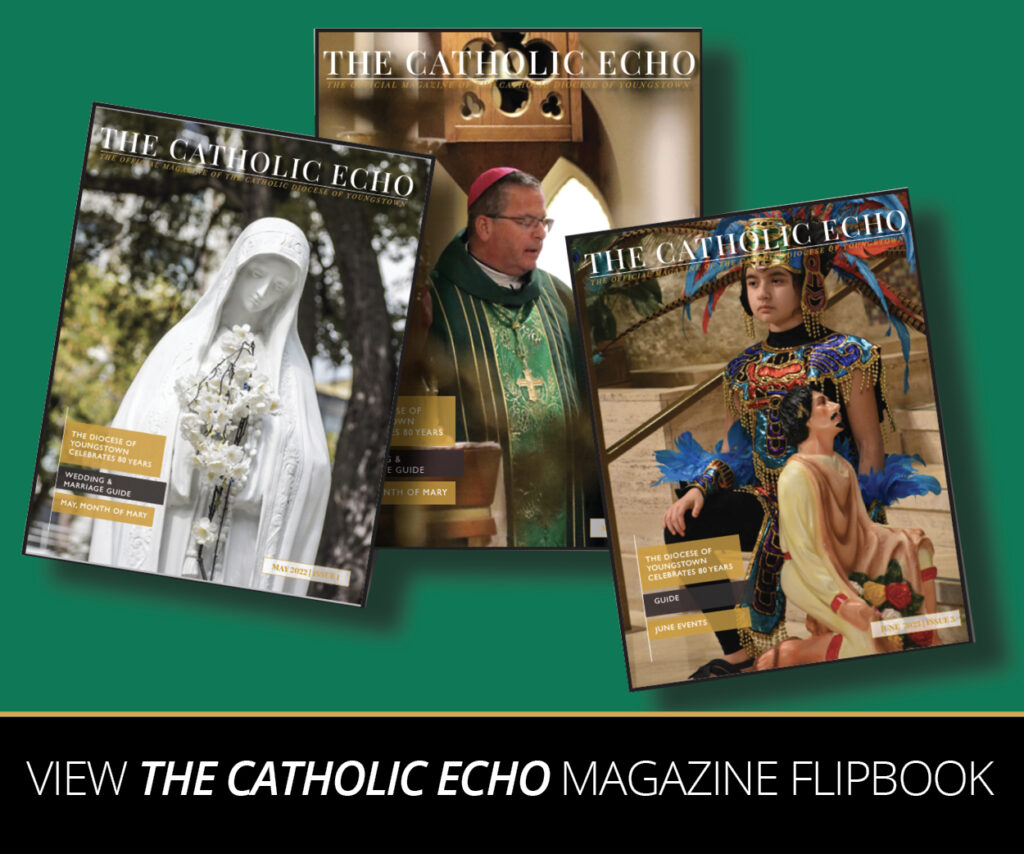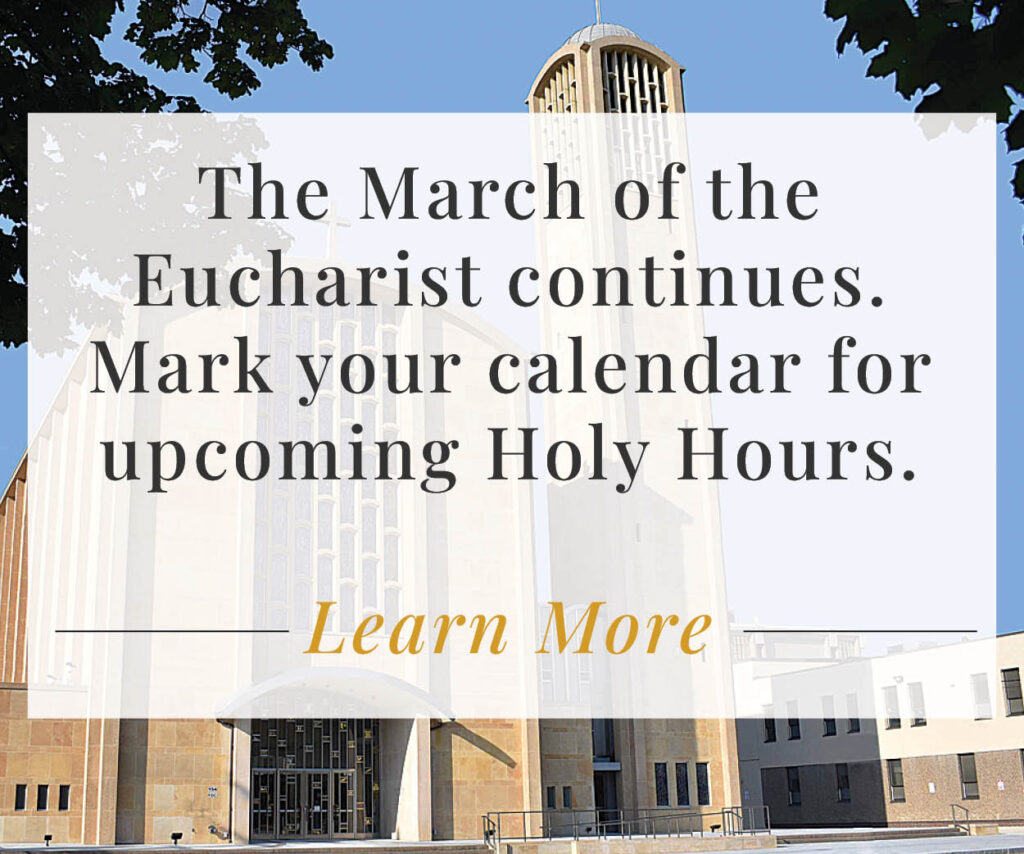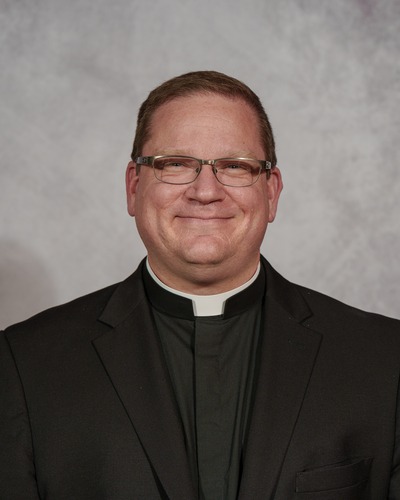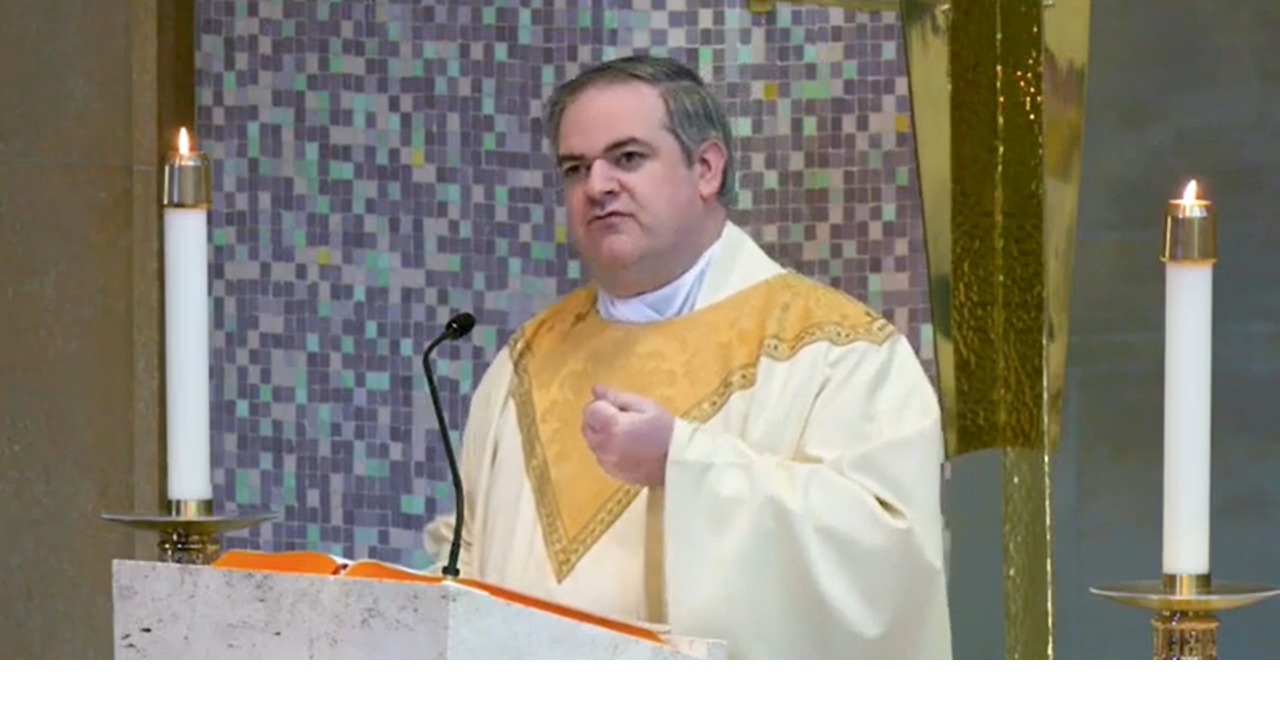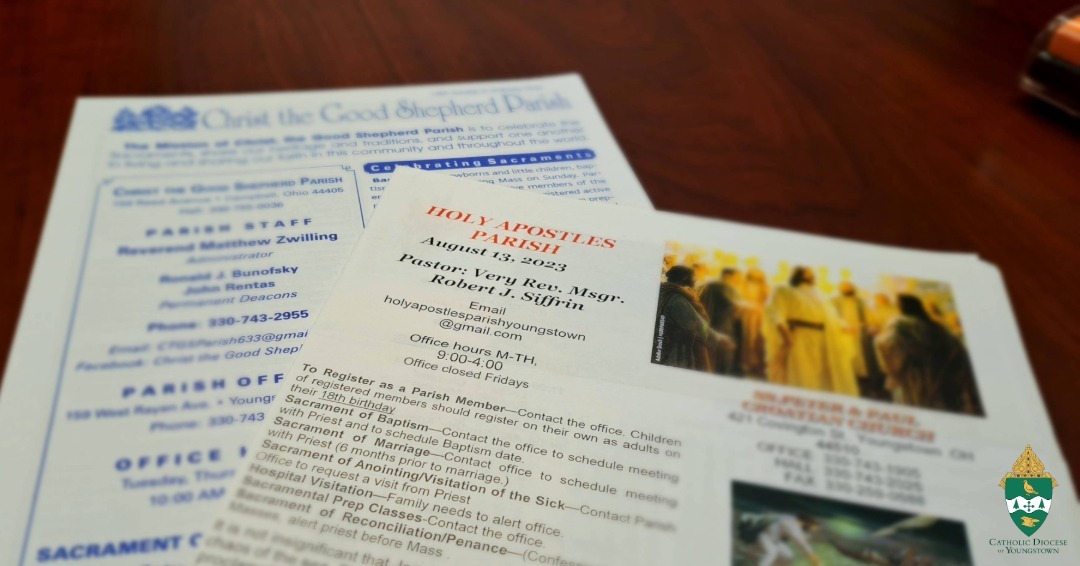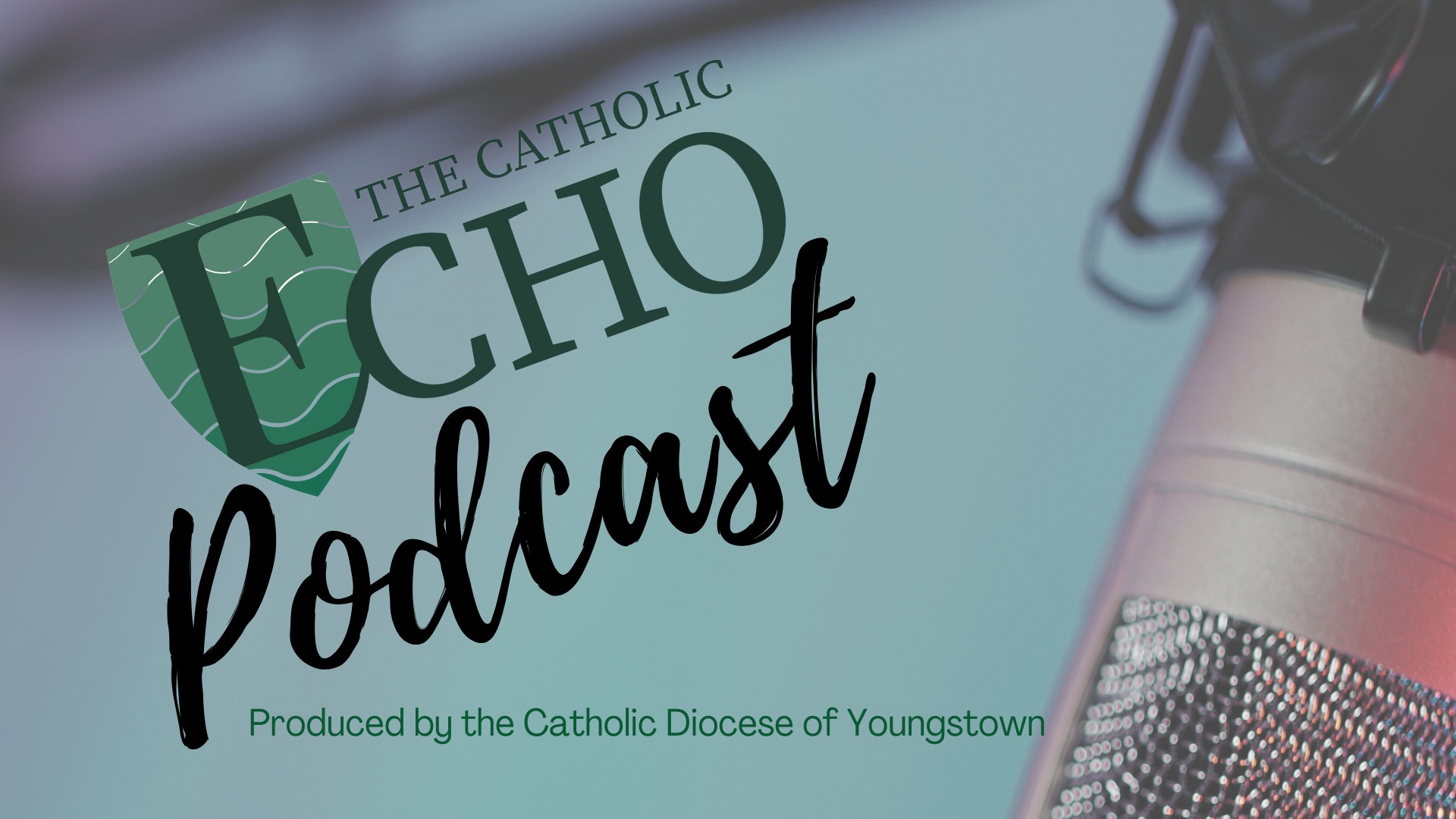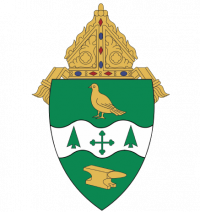Haga clic para la traducción al español.
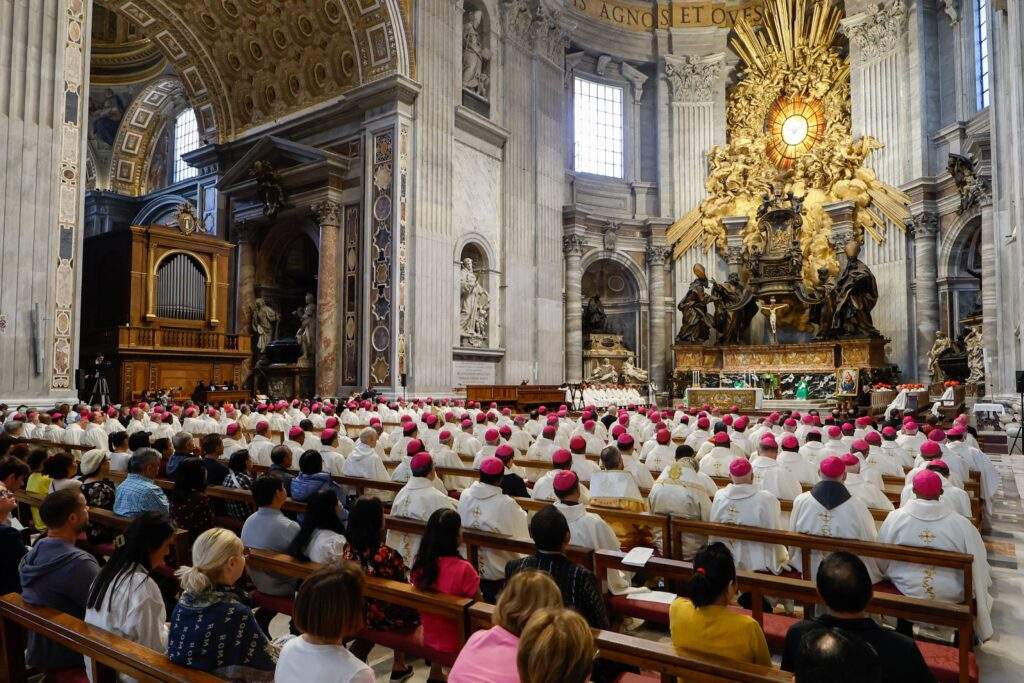
VATICAN CITY (CNS) — The synod on synodality is the “new Pentecost,” which will renew active participation of all Catholics in the life and mission of their church, a cardinal said.
The Catholic Church “needed this time of grace and discernment, a time to look back on the road we have traveled, with its glories and failures, and draw lessons for a new beginning,” Congolese Cardinal Fridolin Ambongo of Kinshasa said in his homily during a Mass with synod participants in St. Peter’s Basilica Oct. 13.
The cardinal, president of the Symposium of Episcopal Conferences of Africa and Madagascar, related the synod assembly to a reading from the Book of Joel in which the prophet calls on Israel’s priests to express their sorrow to God after a locust infestation decimated the year’s harvest and to “gather the elders together to study and seek new ways of presenting themselves before God.”
Similarly, “coming from every continent and gathered together as one family in the beauty of unity in cultural diversity, we are also invited to weep and mourn at this altar, at the tomb of St. Peter, for our weaknesses as church,” he said. Citing the synod assembly’s working document, the cardinal noted the crises related to sexual abuse and the abuse of power, money and conscience that “risked distancing people from the church.”
Synod participants, he said, must “weep and ask God for forgiveness for our faults.”
“But the best way to mourn is to have the courage to embark on a path of repentance and conversion, which opens the way to reconciliation, healing and justice,” he said.
Cardinals Dieudonné Nzapalainga of Bangui, Central African Republic, and Cristóbal López Romero of Rabat, Morocco, were the principal concelebrants at the Mass at the basilica’s Altar of the Chair. Among the intentions read at Mass was a prayer to the Holy Spirit to make shine the light of the women, children and all persons in Africa who are “hopeful against all hope,” and for the church community in the African continent to be a light to the world. The liturgical service and choir were provided by Rome’s Pontifical Urbanian University, the Vatican university dedicated to preparing people for service in missions.
After Mass, the assembly of the Synod of Bishops was scheduled to begin discussions on the synod’s third module, centered on mission and responding to the question, “How can we better share gifts and tasks in the service of the Gospel?”
In his homily, Cardinal Ambongo said that the Gospel reading from St. Luke, in which Jesus drives out a demon from a mute person, “reminds us that the devil is always present and active in our world.”
“The evil one, the demon, sows conflict, discord and division,” he said. “If we have the courage to look at our current reality as a church, it won’t be difficult to see how the evil one is at work and influencing our way of being and acting.”
The cardinal urged synod participants to courageously combat the forces of the devil by using the “weapons of synodality,” namely, “unity, walking together, prayerful discernment, listening to each other and to what the Spirit has to say to the church.”
“We are called to combat this powerful adversary with an equally powerful weapon at our disposal, which is the Holy Spirit, protagonist of this new way of being church — the synodal church,” he said.
Copyright ©2023 Unless otherwise noted: © OSV News / Our Sunday Visitor, Inc. 2023; all content before December 31, 2022 © Catholic News Service / U.S Conference of Catholic Bishops. Send questions about this site to osvnews@osv.com.
El Sínodo es el ‘nuevo Pentecostés’ que renovará la Iglesia, dice un cardenal
Por Justin McLellan, Catholic News Service
CIUDAD DEL VATICANO (CNS) — El sínodo sobre la sinodalidad es el “nuevo Pentecostés”, que renovará la participación activa de todos los católicos en la vida y misión de su Iglesia, dijo un cardenal.
La Iglesia católica “necesitaba este tiempo de gracia y discernimiento, un tiempo para mirar hacia atrás en el camino que hemos recorrido, con sus glorias y fracasos, y sacar lecciones para un nuevo comienzo”, dijo el cardenal congoleño Fridolin Ambongo de Kinshasa en su homilía durante una Misa con los participantes del sínodo en la Basílica de San Pedro el 13 de octubre.
El cardenal, presidente del Simposio de Conferencias Episcopales de África y Madagascar, relacionó la asamblea sinodal con una lectura del Libro de Joel en la que el profeta pide a los sacerdotes de Israel que expresen su dolor a Dios después de que una plaga de langostas diezmara la cosecha del año y que “reúnan a los ancianos para estudiar y buscar nuevas formas de presentarse ante Dios”.
Del mismo modo, “procedentes de todos los continentes y reunidos como una sola familia en la belleza de la unidad en la diversidad cultural, también estamos invitados a llorar y lamentarnos ante este altar, ante la tumba de San Pedro, por nuestras debilidades como Iglesia”, afirmó. Citando el documento de trabajo de la asamblea sinodal, el cardenal señaló las crisis relacionadas con los abusos sexuales y el abuso de poder, dinero y conciencia que “corren el riesgo de distanciar a la gente de la iglesia”.
Los participantes en el sínodo, dijo, deben “llorar y pedir perdón a Dios por nuestras culpas”.
“Pero la mejor manera de afligirse es tener el valor de emprender un camino de arrepentimiento y conversión, que abra la vía de la reconciliación, la sanación y la justicia”, afirmó.
Los cardenales Dieudonné Nzapalainga, de Bangui, República Centroafricana, y Cristóbal López Romero, de Rabat, Marrueco), fueron los principales concelebrantes de la Misa en el Altar de la Cátedra de la basílica. Entre las intenciones leídas en la Misa figuraba una oración al Espíritu Santo para que haga brillar la luz de las mujeres, los niños y todas las personas de África que están “esperanzados contra toda esperanza”, y para que la comunidad eclesial del continente africano sea una luz para el mundo. El servicio litúrgico y el coro corrieron a cargo de la Pontificia Universidad Urbaniana de Roma, la universidad vaticana dedicada a preparar personas para el servicio en las misiones.
Tras la Misa, estaba previsto que la asamblea del Sínodo de los Obispos iniciara los debates sobre el tercer módulo del Sínodo, centrado en la misión y que responde a la pregunta: “¿Cómo podemos compartir dones y tareas al servicio del Evangelio?”.
En su homilía, el cardenal Ambongo dijo que la lectura del Evangelio de San Lucas, en la que Jesús expulsa a un demonio de una persona muda, “nos recuerda que el demonio está siempre presente y activo en nuestro mundo”.
“El maligno, el demonio, siembra conflicto, discordia y división”, dijo. “Si tenemos el valor de mirar nuestra realidad actual como iglesia, no será difícil ver cómo el maligno está actuando e influyendo en nuestra forma de ser y actuar”.
El cardenal instó a los participantes del Sínodo a combatir con valentía las fuerzas del demonio utilizando las “armas de la sinodalidad”, es decir, “la unidad, el caminar juntos, discernir en la oración, escucharse unos a otros y escuchar lo que el Espíritu tiene que decir a la Iglesia”.
“Estamos llamados a combatir a este poderoso adversario con un arma igualmente poderosa a nuestra disposición, que es el Espíritu Santo, protagonista de esta nueva forma de ser Iglesia: la iglesia sinodal”, afirmó.

